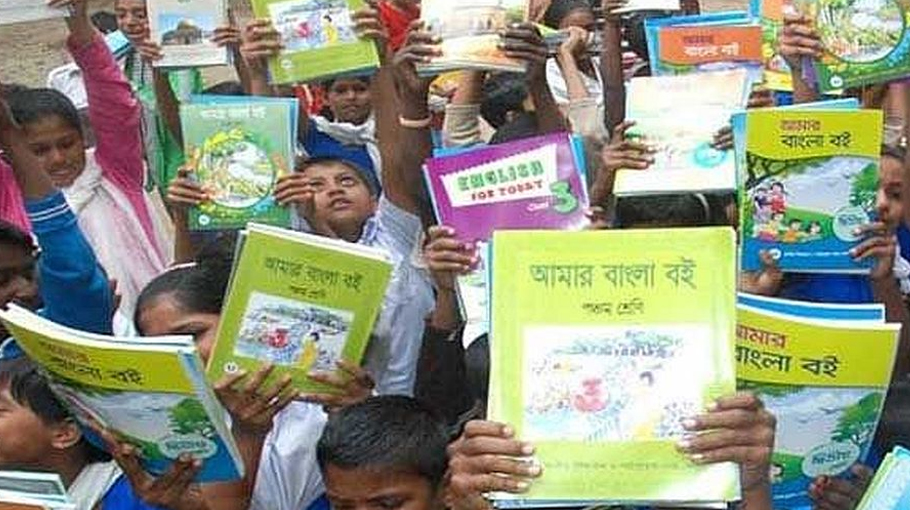Errors found in new textbooks

Some misspellings and inconsistencies have been discovered in the class VIII and class IX textbooks printed in accordance with the new curriculum.
Although the books claim to have adhered to the Bangla Academy's spelling rules, they have been found to differ in numerous instances.
On January 1, students, parents, and teachers reported multiple errors and inconsistencies within a day of receiving these books; as time goes on, the number of errors and objections regarding the spelling and presentation of these books is growing. While the new book covers many topics that are timely, it also covers some language topics that many in education believe are not yet acceptable in our culture.
Thus far, the preliminary analysis has indicated that the eighth-grade health book incorporates adolescent vocabulary in addition to promoting awareness of disease, physical fitness, healthy eating, and self-confidence. Puberty is covered in-depth in all 16 pages of this book. Adolescent physical changes are also discussed in great detail. Although it is good to see them in textbooks, there has been discussion about their linguistic choices.
Rasheda K. Chowdhury, a former caretaker government advisor, says that while teaching adolescence through textbooks is a commendable initiative, a whole paragraph is devoted to presenting women's issues in a way that still requires girls to be in an awkward situation because it is not yet acceptable in our society or culture.
While Bangla Academy spelling rules are followed, the book's text notes that there are a few misspellings in certain books: the term "shohojogita" is misspelled with "e-car" multiple times in the 9th grade art and culture book; credit provision rules were ignored; the phrase "Prithibi obak takiye roy" appears fifteen times, but the word "Prithivi" is misspelled thirteen
times, turning Pakistan into "Paki estan." Additionally, in some instances, the sentence structures were found incorrect.
In the Bengali books for grades eight and nine, the author introductions are condensed. The author's birth and death year, as well as the Bengali and Christian dates, were once included in textbooks. In addition, there were the writer's birthplace, education, notable accomplishments, and honors. Only the Christian years of birth and death are enclosed in parenthesis in the new curriculum books, and the birthplace of the author is not mentioned.
In response to a question on the subject, NCTB member Professor Moshiuzzaman stated that errors can occur when a book is written quickly. These errors will be fixed later, and the author's identity has been deliberately written down.
Teachers, parents, and students are asked to report any errors or linguistic inconsistencies in the new academic year's textbook to the National Curriculum and Textbook Board (NCTB), even if they already exist. The NCTB promised to carefully consider any information, linguistic errors, or suggestions regarding the new book.
NCTB requested this advice in a press release last Monday. It has come to light that the following email addresses have been contacted regarding the errors: chairman@nctb.gov.bd and direct-textbook building 69–70, Motijheel or/and at Dhaka–1000.
On Monday, 3,81,28,354 students nationwide who are in pre-primary, primary, and secondary education received brand-new books as part of the nation's annual book distribution program. Books from the new curriculum are given to students in classes I, II, III, VI, VII, VIII, and IX, while books from the old curriculum are given to students in classes IV and V.




